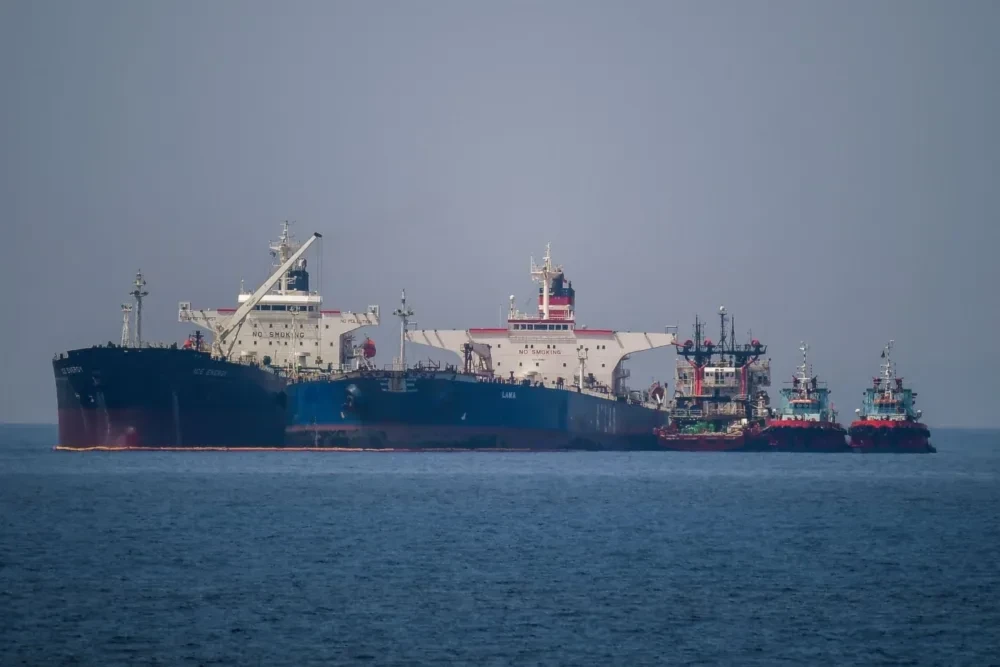Russia's fleet expands in defiance of Western sanctions
A recent report from the Kyiv School of Economics (KSE), cited by The Financial Times, reveals that Moscow's capacity to transport oil using outdated and underinsured vessels has increased by nearly 70% since last year.
-

The Liberian-flagged oil tanker Ice Energy (L) transfers crude oil from the Russian-flagged oil tanker Lana (R), off the shore of Karystos, on the Island of Evia, on May 29, 2022. (AFP via Getty Images)
Moscow's ability to transport oil using outdated, underinsured vessels has surged by nearly 70% since last year, The Financial Times reported, citing a report published by the Kyiv School of Economics (KSE) on Monday.
This increase reflects Russia's expansion of its shadow fleet of oil tankers, despite recent efforts by insurers and shipping companies to clamp down on practices that allow Moscow to evade Western sanctions, as per the report.
The volume of Russian oil transported by poorly maintained and underinsured tankers has risen from 2.4 million barrels per day in June 2023 to 4.1 million barrels per day in June 2024, the report added.
This trend emerges as the US, Canada, Japan, and European allies intensify their efforts to target global insurers and ship owners to limit Moscow's ability to fund its war in Ukraine. They have also expanded their sanctions to include companies and individual vessels linked to Russia's shadow fleet.
“Sanctions on tankers have been quite effective but the designation campaign has been too limited to actually rein in Russia’s shadow fleet,” said Benjamin Hilgenstock, one of the authors of the KSE report.
It is worth noting that the imposition of a price cap and embargo on Russian oil by Western governments aimed to collapse the country’s economy while also allowing Russian crude oil to flow into the international markets.
Meanwhile, Russia retaliated against the West’s sanctions by redirecting most of its energy exports to Asia, selling well above the imposed price cap, primarily in India and China.

 2 Min Read
2 Min Read









